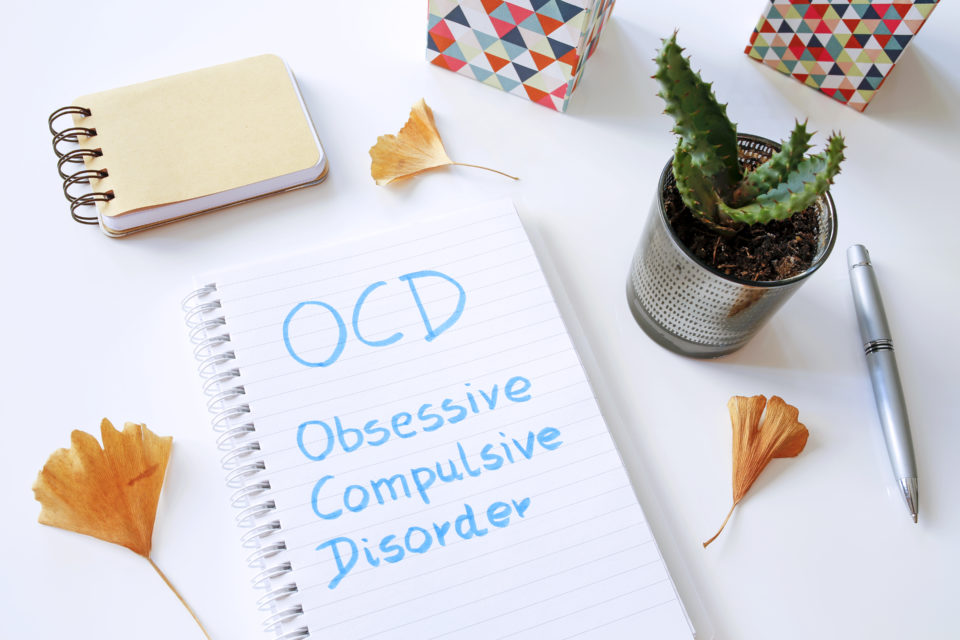January 11, 2022
How ACT Can Help You Manage OCD Thoughts
Written by Rachel Eddins

You or someone you know might be dealing with Obsessive-Compulsive Disorder (OCD).
If so, you know a common goal is to reduce or eliminate obsessions and compulsions. This makes sense and there are effective treatments available to help make this possible.
However, this is not the only approach to consider.
Acceptance and Commitment Therapy (ACT) is a behavioral therapy that can help someone with OCD more quickly experience a form of relief.
Loosely speaking, this is possible by reframing your condition and your behavior. As the name implies, such a process begins with acceptance. Let’s get started by learning a little more about ACT.
What is ACT?
The theory behind Acceptance and Commitment Therapy is that it’s harmful to try suppressing painful experiences.
An alternative approach begins with the acceptance that the human condition inherently involves negative thoughts, feelings, and events. From there, one can commit to taking action to improve their life right here in the present. ACT:
- Encourages you to accept and embrace what you think and feel
- Helps you develop psychological flexibility
- Guides you to commit to facing issues rather than avoiding them
Your ACT therapist will assist you in recognizing that “problems” are in the eye of the beholder. You don’t have to ruminate or feel guilt and shame.
Negative events and experiences are a part of life. We each have the option to:
- Run from them or fight them
- Accept their existence and commit to learning skills to deal with them
ACT suggests that you choose the latter. This approach is becoming increasingly common with people struggling with OCD.
How ACT Can Help You Manage OCD Thoughts
You may have found that OCD thoughts and behavior become more persistent when you fight them. Acceptance and Commitment Therapy encourages you to focus more on mindfulness.
Stay present and aim your energy on living the life you want. Accept your feelings and thoughts but not as obstacles or enemies.
Accept them as reality and accept that all you can control is your response to them. From there, you can commit to what is important to you.
A major part of this treatment approach is emphasizing intention.
If you have OCD, you could find yourself primarily focused on blocking out negative thoughts and/or distracting yourself from them. Your ACT therapist is here to help use the majority of moments in your day toward living a more meaningful life.
You’re not ignoring the OCD. In fact, ACT will provide you with many helpful skills. But what you’re doing is accepting the situation for it is and committing to do your best with it.
ACT & OCD Recap
Acceptance and Commitment Therapy for OCD involves:
- Not running from your obsessions and compulsions
- Choosing to see those behaviors as something that can be changed via therapy
- Not assigning blame
- Not assigning labels like abnormal or bad or unhealthy
- Aiming to control only that which is truly within your control (e.g. you can control your thoughts and reactions but not the external environment)
- Clarifying your goals and values
- Living a life rooted in mindfulness
- Changing the relationship you have with your memories and sensations
- Accepting your obsessions and compulsions
- Committing to living the best life possible
Obsessive-Compulsive Disorder presents a challenge to your daily life. Even so, it can be addressed and managed in a variety of ways.
Acceptance and Commitment Therapy is fast becoming a common choice for such work.
However, you may have some valid questions. ACT is a different kind of approach and we’d be happy to help clarify more.

Next Steps
Therapy can help you live the life you long for, free of obsessive thoughts and compulsions. Allow OCD treatment to help you move forward.
To get started with OCD treatment with an Eddins Counseling Group therapist in Houston, Montrose, or Sugar Land, call (832) 559-2622 or text (832) 699-5001 us today!
5 Ways to Reduce Anxiety
Get instant access to your free ebook.
Grounding & Self Soothing
Get instant access to your free ebook.
Create Healthier Thoughts & Feelings
Get instant access to your free ebook.
Why You Feel This Way
Get instant access to your free ebook.


















